
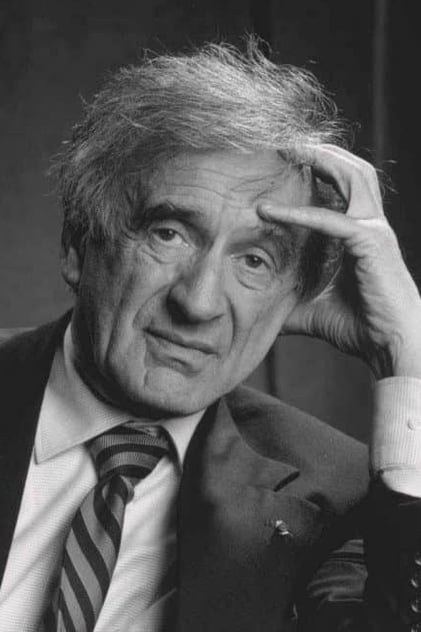
Elie Wiesel
Born: September 30, 1928
Died: July 2, 2016
in Sighet, Transylvania, Kingdom of Romania [now Sighetu Marmatiei, Maramures, Romania]
Died: July 2, 2016
in Sighet, Transylvania, Kingdom of Romania [now Sighetu Marmatiei, Maramures, Romania]
Elie Wiesel (born Eliezer Wiesel, Yiddish: אליעזר װיזעל Eliezer Vizel; September 30, 1928 – July 2, 2016) was a Romanian-born American writer, professor, political activist, Nobel laureate, and Holocaust survivor. He authored 57 books, written mostly in French and English, including Night, a work based on his experiences as a Jewish prisoner in the Auschwitz and Buchenwald concentration camps.
He was a professor of the humanities at Boston University, which created the Elie Wiesel Center for Jewish Studies in his honor. He was involved with Jewish causes and human rights causes and helped establish the United States Holocaust Memorial Museum in Washington, D.C. In his political activities, he also campaigned for victims of oppression in places like South Africa, Nicaragua, Kosovo, and Sudan. He publicly condemned the 1915 Armenian genocide and remained a strong defender of human rights during his lifetime. He was described as "the most important Jew in America" by the Los Angeles Times in 2003.
Wiesel was awarded the Nobel Peace Prize in 1986. The Norwegian Nobel Committee called him a "messenger to mankind", stating that through his struggle to come to terms with "his own personal experience of total humiliation and of the utter contempt for humanity shown in Hitler's death camps", as well as his "practical work in the cause of peace", Wiesel delivered a message "of peace, atonement, and human dignity" to humanity. The Nobel Committee also stressed that Wiesel's commitment originated in the sufferings of the Jewish people but that he expanded it to embrace all repressed peoples and races. He was a founding board member of the New York Human Rights Foundation and remained active in it throughout his life.
Elie Wiesel was born in Sighet (now Sighetu Marmației), Maramureș, in the Carpathian Mountains of Romania. His parents were Sarah Feig and Shlomo Wiesel. At home, Wiesel's family spoke Yiddish most of the time, but also German, Hungarian, and Romanian. Wiesel's mother, Sarah, was the daughter of Dodye Feig, a Vizhnitz Hasid and farmer from the nearby village of Bocskó. Dodye was active and trusted within the community.
Wiesel's father, Shlomo, instilled a strong sense of humanism in his son, encouraging him to learn Hebrew and to read literature, whereas his mother encouraged him to study the Torah. Wiesel has said his father represented reason, while his mother Sarah promoted faith. Wiesel was instructed that his genealogy traced back to Rabbi Schlomo Yitzhaki (Rashi), and was a descendant of Rabbi Yeshayahu ben Abraham Horovitz ha-Levi.
Wiesel had three siblings—older sisters Beatrice and Hilda, and younger sister Tzipora. Beatrice and Hilda survived the war, and were reunited with Wiesel at a French orphanage. They eventually emigrated to North America, with Beatrice moving to Montreal, Quebec, Canada. Tzipora, Shlomo, and Sarah did not survive the Holocaust. ...
Source: Article "Elie Wiesel" from Wikipedia in English, licensed under CC-BY-SA 3.0.
He was a professor of the humanities at Boston University, which created the Elie Wiesel Center for Jewish Studies in his honor. He was involved with Jewish causes and human rights causes and helped establish the United States Holocaust Memorial Museum in Washington, D.C. In his political activities, he also campaigned for victims of oppression in places like South Africa, Nicaragua, Kosovo, and Sudan. He publicly condemned the 1915 Armenian genocide and remained a strong defender of human rights during his lifetime. He was described as "the most important Jew in America" by the Los Angeles Times in 2003.
Wiesel was awarded the Nobel Peace Prize in 1986. The Norwegian Nobel Committee called him a "messenger to mankind", stating that through his struggle to come to terms with "his own personal experience of total humiliation and of the utter contempt for humanity shown in Hitler's death camps", as well as his "practical work in the cause of peace", Wiesel delivered a message "of peace, atonement, and human dignity" to humanity. The Nobel Committee also stressed that Wiesel's commitment originated in the sufferings of the Jewish people but that he expanded it to embrace all repressed peoples and races. He was a founding board member of the New York Human Rights Foundation and remained active in it throughout his life.
Elie Wiesel was born in Sighet (now Sighetu Marmației), Maramureș, in the Carpathian Mountains of Romania. His parents were Sarah Feig and Shlomo Wiesel. At home, Wiesel's family spoke Yiddish most of the time, but also German, Hungarian, and Romanian. Wiesel's mother, Sarah, was the daughter of Dodye Feig, a Vizhnitz Hasid and farmer from the nearby village of Bocskó. Dodye was active and trusted within the community.
Wiesel's father, Shlomo, instilled a strong sense of humanism in his son, encouraging him to learn Hebrew and to read literature, whereas his mother encouraged him to study the Torah. Wiesel has said his father represented reason, while his mother Sarah promoted faith. Wiesel was instructed that his genealogy traced back to Rabbi Schlomo Yitzhaki (Rashi), and was a descendant of Rabbi Yeshayahu ben Abraham Horovitz ha-Levi.
Wiesel had three siblings—older sisters Beatrice and Hilda, and younger sister Tzipora. Beatrice and Hilda survived the war, and were reunited with Wiesel at a French orphanage. They eventually emigrated to North America, with Beatrice moving to Montreal, Quebec, Canada. Tzipora, Shlomo, and Sarah did not survive the Holocaust. ...
Source: Article "Elie Wiesel" from Wikipedia in English, licensed under CC-BY-SA 3.0.
Movies for Elie Wiesel...
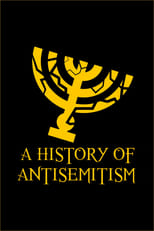
Title: A History of Antisemitism
Character: Self - Writer (archive footage)
Released: April 12, 2022
Type: TV
A detailed account of the two millennia of intolerance and persecution suffered by the Jews, from antiquity to the present day.

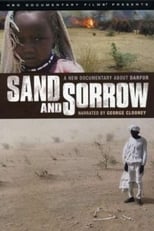
Title: Sand and Sorrow
Character: Self
Released: December 7, 2007
Type: Movie
A documentary about the events that led to the rise of Darfur's Arab-dominated government and the international community's "legacy of failure" to respond to the genocide carried out in the country.


Title: A Special Presentation Oprah and Elie Wiesel at Auschwitz Death Camp
Character: Self
Released: May 24, 2006
Type: Movie
Oprah and Night author Elie Wiesel travel to the Auschwitz death camp in Poland. See the Holocaust through the eyes of a survivor.

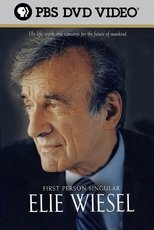
Title: Elie Wiesel: First Person Singular
Character: Self
Released: October 24, 2002
Type: Movie
Visual biography of Nobel Prize-winning author, Holocaust survivor, and human rights activist Elie Wiesel.


Title: Tibet's Stolen Child
Released: May 11, 2001
Type: Movie
A film about the abduction of Tibet's second highest ranking Lama by the Chinese authorities.




Title: Elie Wiesel Goes Home
Character: Self
Released: September 5, 1996
Type: Movie
The painful return of a great writer to his birthplace, Sighet, and to the concentration camps he had to survive.

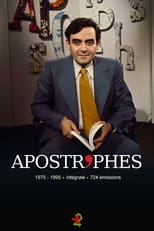
Title: Apostrophes
Character: Self
Released: January 10, 1975
Type: TV
Apostrophes was a live, weekly, literary, prime-time, talk show on French television created and hosted by Bernard Pivot. It ran for fifteen years (724 episodes) from January 10, 1975, to June 22, 1990, and was one of the most watched shows on French television (around 6 million regular viewers). It was broadcast on Friday nights on the channel France 2 (which was called "Antenne 2" from 1975 to 1992). The hourlong show was devoted to books, authors and literature. The format varied between one-on-one interviews with a single author and open discussions between four or five authors.

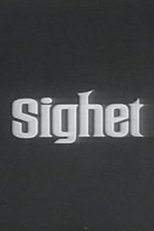
Title: Sighet, Sighet
Character: Self
Released: January 1, 1967
Type: Movie
Elie Wiesel, a survivor from Sighet, a town from which a thousand Jews were deported to the ovens of Auschwitz, returns, unknown and unseen, a silent witness to the town where he was born and grew up.
